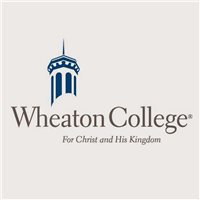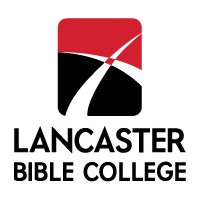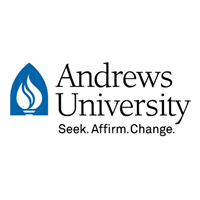What do they do?
Coordinate or design programs and conduct outreach to promote the religious education or activities of a denominational group. May provide counseling, guidance, and leadership relative to marital, health, financial, and religious problems.
Also known as:
Adult Ministries Director, Campus Ministries Director, Children's Director, Children's Ministries Director, Christian Education Director, Family Ministries Director, Ministries Director, Parish Religious Education Director, Religious Education Coordinator, Religious Education Director, Senior Adults Director, Student Ministries Director, Women's Ministries Director, Youth and Family Ministries Director, Youth Director, Youth Ministries Coordinator, Youth Ministries Director, Youth Pastor
-
2.1%
Change
Select a state to see its job growth rate ranking17,400Job Openings
Select a state to see its net job growth ranking
-
Wheaton College
Wheaton, IL
-
-
The Master's University and Seminary
Santa Clarita, CA
-
Harvard University
Cambridge, MA
-
Jewish Theological Seminary of America
New York, NY
Looking for colleges that offer a specific major? Use the College Match Tool to find your best-matched schools and discover your estimated Net Price!
- Doctorate or Professional Degree (4%)
- Master's degree (22%)
- Bachelor's degree (39%)
- Associate's degree (8%)
- Some college, no degree (16%)
- High school diploma equivalent (10%)
- Less than high school diploma (1%)
Most Popular Majors that prepare Directors, Religious Activities and Education
-
#1
-
Degrees Granted
764
-
Female Students
285
-
Male Students
479
-
Median Starting Salary
$36,200
-
-
#2
-
Degrees Granted
672
-
Female Students
332
-
Male Students
340
-
Median Starting Salary
$32,900
-
-
#3
-
Degrees Granted
456
-
Female Students
262
-
Male Students
194
-
Median Starting Salary
$34,880
-
-
#4
-
Degrees Granted
418
-
Female Students
280
-
Male Students
138
-
Median Starting Salary
$44,000
-
-
#5
-
Degrees Granted
298
-
Female Students
126
-
Male Students
172
-
Median Starting Salary
$32,900
-
People in this career often have these skills:
- Speaking - Talking to others to convey information effectively.
- Active Listening - Giving full attention to what other people are saying, taking time to understand the points being made, asking questions as appropriate, and not interrupting at inappropriate times.
- Social Perceptiveness - Being aware of others' reactions and understanding why they react as they do.
- Reading Comprehension - Understanding written sentences and paragraphs in work-related documents.
- Critical Thinking - Using logic and reasoning to identify the strengths and weaknesses of alternative solutions, conclusions, or approaches to problems.
- Active Learning - Understanding the implications of new information for both current and future problem-solving and decision-making.
- Instructing - Teaching others how to do something.
- Service Orientation - Actively looking for ways to help people.
- Learning Strategies - Selecting and using training/instructional methods and procedures appropriate for the situation when learning or teaching new things.
- Coordination - Adjusting actions in relation to others' actions.
- Judgment and Decision Making - Considering the relative costs and benefits of potential actions to choose the most appropriate one.
- Complex Problem Solving - Identifying complex problems and reviewing related information to develop and evaluate options and implement solutions.
People in this career often know a lot about:
- Philosophy and Theology - Knowledge of different philosophical systems and religions. This includes their basic principles, values, ethics, ways of thinking, customs, practices, and their impact on human culture.
- Education and Training - Knowledge of principles and methods for curriculum and training design, teaching and instruction for individuals and groups, and the measurement of training effects.
- Customer and Personal Service - Knowledge of principles and processes for providing customer and personal services. This includes customer needs assessment, meeting quality standards for services, and evaluation of customer satisfaction.
- English Language - Knowledge of the structure and content of the English language including the meaning and spelling of words, rules of composition, and grammar.
- Psychology - Knowledge of human behavior and performance; individual differences in ability, personality, and interests; learning and motivation; psychological research methods; and the assessment and treatment of behavioral and affective disorders.
- Therapy and Counseling - Knowledge of principles, methods, and procedures for diagnosis, treatment, and rehabilitation of physical and mental dysfunctions, and for career counseling and guidance.
People in this career often have talent in:
- Written Comprehension - The ability to read and understand information and ideas presented in writing.
- Oral Expression - The ability to communicate information and ideas in speaking so others will understand.
- Written Expression - The ability to communicate information and ideas in writing so others will understand.
- Oral Comprehension - The ability to listen to and understand information and ideas presented through spoken words and sentences.
- Speech Recognition - The ability to identify and understand the speech of another person.
- Speech Clarity - The ability to speak clearly so others can understand you.
- Deductive Reasoning - The ability to apply general rules to specific problems to produce answers that make sense.
- Problem Sensitivity - The ability to tell when something is wrong or is likely to go wrong. It does not involve solving the problem, only recognizing that there is a problem.
- Fluency of Ideas - The ability to come up with a number of ideas about a topic (the number of ideas is important, not their quality, correctness, or creativity).
- Originality - The ability to come up with unusual or clever ideas about a given topic or situation, or to develop creative ways to solve a problem.
- Inductive Reasoning - The ability to combine pieces of information to form general rules or conclusions (includes finding a relationship among seemingly unrelated events).
People in this career often do these activities:
- Develop educational programs.
- Lead classes or community events.
- Plan conferences, programs, or special events.
- Advise clients or community groups on health issues.
- Counsel clients regarding interpersonal issues.
- Counsel clients or patients regarding personal issues.
- Develop promotional strategies for religious organizations.
- Collaborate with other professionals to develop education or assistance programs.
- Train staff members in social services skills.
- Supervise workers providing client or patient services.
- Assess individual or community needs for educational or social services.
- Manage organizational or program finances.
- Maintain professional social services knowledge.
- Visit individuals in their homes to provide support or information.
- Present social services program information to the public.
- Interpret cultural or religious information for others.
- Provide educational materials to community members.
This page includes data from:

 Occupation statistics: USDOL U.S. Bureau of Labor Statistics Occupational Employment Statistics
Occupation statistics: USDOL U.S. Bureau of Labor Statistics Occupational Employment Statistics
 Videos: CareerOneStop, USDOL/ETA and the Minnesota Department of Employment & Economic Development
Videos: CareerOneStop, USDOL/ETA and the Minnesota Department of Employment & Economic Development









